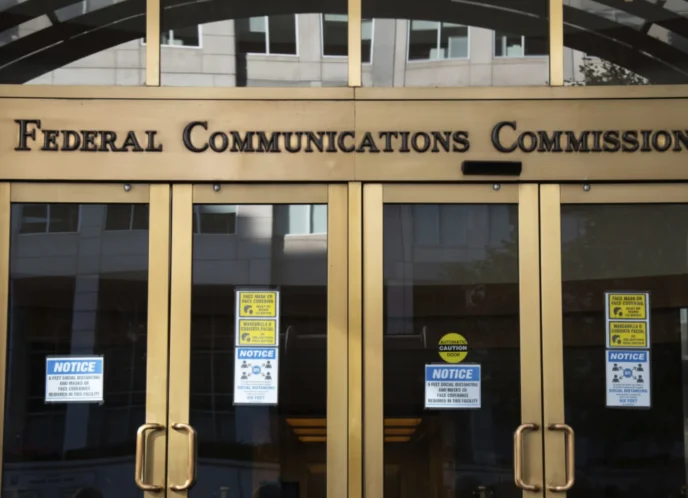By Myaisha Hayes and Eteng Ettah
Yesterday evening, Americans watched a joint interview with President Trump and Elon Musk—a tradition that is typically reserved for a president and vice president of an administration. Prompted by the interviewer to address his lawsuit against X, the president responded by announcing that in the resultant $10 million settlement, he had afforded Musk a “big discount.”
The president’s lawsuit, filed four years ago, accused X (formerly Twitter) of censoring him by deleting his account after the January 6 insurrection attempt. By settling the lawsuit shortly after assuming office, and at a “big discount,” Trump rewarded Musk and his company, X, for loyalty to the president. Musk is not the only tech titan being abdicated from previous offenses to Trump; Meta settled a similar lawsuit from the president for $25 million.
The second Trump administration has arrived, and with it, a social media landscape more dangerous than any we’ve seen before. On Inauguration Day, the nation witnessed a parade of Silicon Valley’s most powerful CEOs and billionaires by Trump’s side. The tech titans earned their place in Trump-world by capitulating what little overtures they have made in past decades to content moderation, digital rights, and platform accountability on their products and services. As tech corporations fall in line behind Trump, we should assume that these platforms will soon become full-blown propaganda machines.
Right now, major tech companies like Google, Amazon, and Meta are shaping what narratives we see and believe. Social media apps, search engines, and streaming services are not neutral platforms. Rather, they are optimized—by those who build and profit from them—to change the way we think and control what we pay attention to. There is nothing preventing tech billionaires from optimizing their platforms to carry out the far right’s agenda: keeping us divided and distracted while a handful of rich white men hoard wealth, power, and control over our bodies, our minds, and our lives.
In fact, Big Tech is already parroting Trump’s narratives. Just in the last several weeks:
– Google and Apple renamed the Gulf of Mexico to the Gulf of America on their map products.
– Amazon cut all references to ‘diversity’ from its Annual Plan.
– Meta ended its fact checking program and greenlit hate speech and disinformation.
This mass realignment in Silicon Valley is much bigger than just social media. Yes, tech billionaires are shaping speech online to benefit the administration. But the power and influence flows both ways.
Most notably, Mark Zuckerberg—who previously presented himself as committed to addressing hate speech—wasted no time rebranding Meta in Trump’s image. In a 3-hour interview on Joe Rogan’s podcast, Zuckerberg further expanded on his decision by asserting that content moderation policies not only stifle freedom of speech, but also “neuter” the corporate environment. Zuckerberg has since also discontinued all of Meta’s equitable hiring goals.
Zuckerberg is jumping on the right wing’s anti-DEI bandwagon because he believes he stands to benefit from this about-face. It is clear that narrative attacks on DEI are being used as a pretext for hijacking government functions, handing the keys to Big Tech, and generating new profits for corporations.
Case in point: an unelected Elon Musk is firing government workers en masse, and allegedly plans to replace them with AI—a technology which stands to benefit big tech corporations and their shareholders over our communities’ needs. Trump’s fascist political agenda provides the perfect cover for tech companies to consolidate their power, influence policy, rake in billions in profit from user data and engagement, and continue to evade any accountability.
This is what happens when the media and tech corporate-state collude as one. It took just a few weeks to undo the years of advocacy and organizing led by racial justice groups, academics, and civil society to push for these platforms to adopt responsible policies. With millions of users worldwide relying on platforms like Meta, the implications and impact of these changes to content moderation will be felt around the world. Moving forward, we can’t reduce this to just a “free speech” issue but a question of power: why does a single person and a single platform have this much power?
For organizations like us at MediaJustice, the question on the table is not just how to navigate this terrain but also how to transcend it. After 15+ years of building a presence on X and using the platform to encourage our base, allies, and fellow advocates to join us in creating a more just media and tech landscape, we’ve made the decision to officially close our X account on March 4. Instead, we will transition to alternative platforms like BlueSky. This decision reflects a broader shift in our approach: we must find spaces for connection and activism, even as we continue to fight for accountability and safety in the digital world.
To resist the right wing’s propaganda, we must create our own platforms, spaces, and connections. We must divest from billionaires’ platforms, and invest in publicly beneficial media and technology. The next four years will be challenging, but they also present an opportunity. By collectively reimagining how we engage with technology, we can create a new standard and culture for the next ecosystem that will replace the one we currently have.



